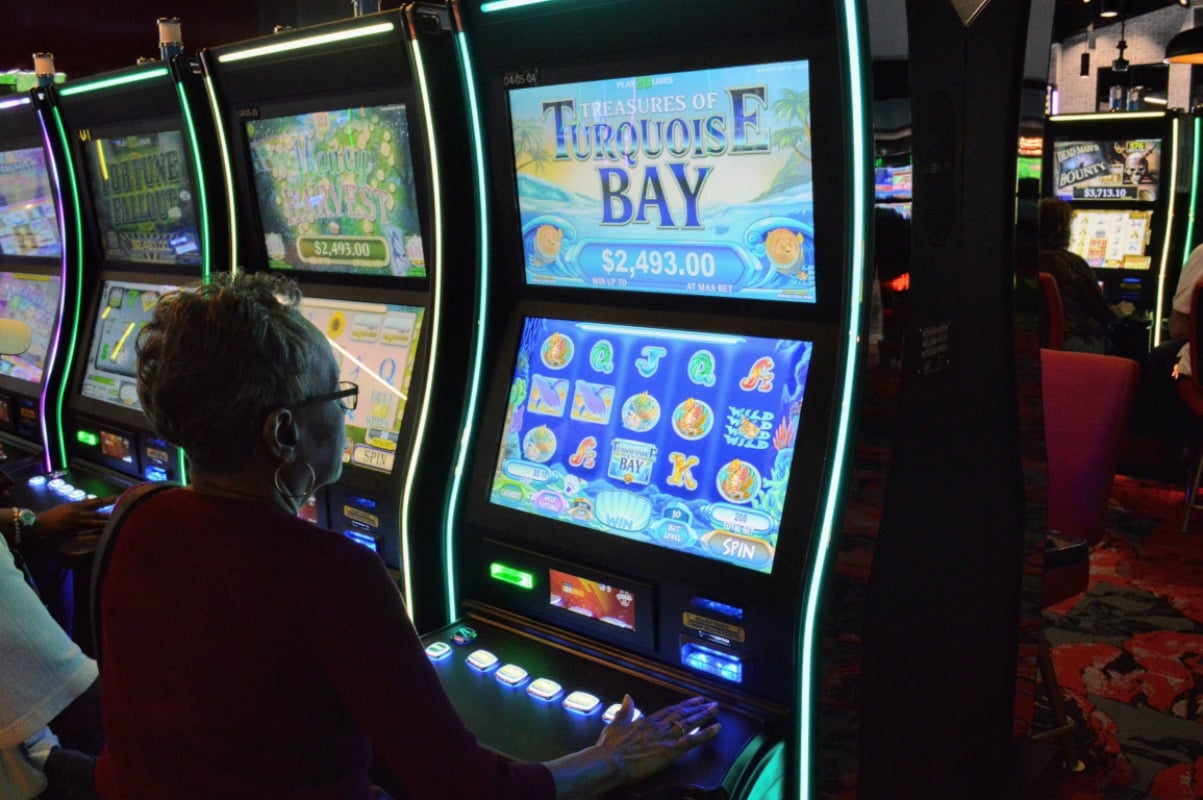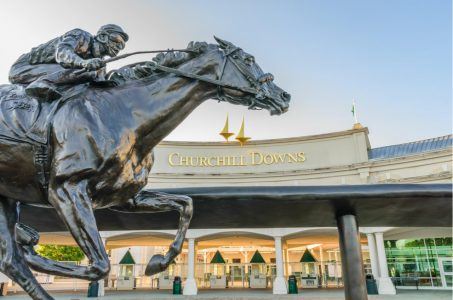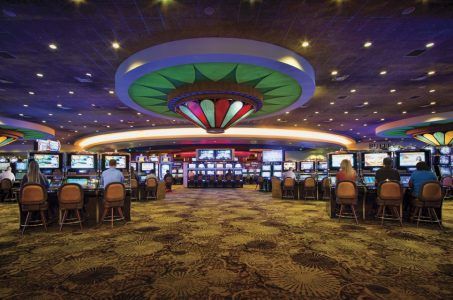Virginia Historical Racing Strong Out of the Gate, Delivers $885K in Tax Revenue in First Full Month
Posted on: June 19, 2019, 11:38h.
Last updated on: June 19, 2019, 11:39h.
Historical racing machines, the controversial gaming devices that closely mimic slots, delivered Virginia and local counties where they’re permitted substantial tax revenue last month.

May marked the first full month that the Commonwealth allowed gamblers to bet on historical horse races. Data from the Virginia Racing Commission reveals that patrons wagered $70.8 million, which generated $531,000 in state tax revenue, and $354,000 in local funds.
Colonial Downs was purchased by Chicago-based Revolutionary Racing last year on the condition that the shuttered track would be authorized to reopen with historical racing machines. Virginia lawmakers – long opposed to any form of gambling expansion – passed legislation to allow the devices in April 2018.
Along with Colonial Downs, the measure allows the track to open four off-track betting venues, which will all use Revolutionary’s Rosie’s Gaming Emporium brand. May’s revenue report includes operations of 600 machines at the track, and 150 devices at an OTB in Vinton.
Industry Lifeline
Horse racing has been a dying sport across the US in recent decades. Tracks have shuttered in numerous states, and horsemen have looked to expanded gaming to resurrect their industry.
Historical racing machines – which allow gamblers to place bets on races previously run with the names of the horses, jockeys, trainers, and track location concealed – has been critical to attracting people to the tracks.
This tremendous response is helping us deliver on our promise to bring significant jobs and tax revenues to Virginia and its localities,” Colonial Downs COO Aaron Gomes told the Virginia Mercury. “And we are literally just out of the gate and getting started with great expectations to come.”
The gaming machines don’t come without controversy. Critics say they are simply well-disguised slot machines.
“The only winner of expanded gambling in Virginia is the gambling industry,” Family Foundation President Victoria Cobb opined in April. “The promised panacea of increased revenue to the state never seems to materialize, and the cost to the community of broken homes and families can be devastating.”
Rosie’s website explains that along with watching the animated horserace, players have the option of watching “graphic representations of those outcomes as you would on a traditional casino game.”
Skilled Machines Targeted
Virginia still doesn’t have any traditional commercial or tribal casinos with Las Vegas-style slot machines and table games, but it does have gray markets where locals can make a bet.
Convenience stores, bars, and restaurants across the state have incorporated so-called “skill machines” into their establishments. Players can bet on their expertise in such familiar games as tic-tac-toe and memory challenges.
“People would say that poker, Texas hold’em, and blackjack all have elements of skill but they’re not predominantly skill because you can’t affect the outcome of how the cards are laid out,” skill gaming manufacturer Kevin Anderson of told The Daily Progress. “The difference in our game is you can actually win every single time.”
Joseph Platania, who is the attorney for Charlottesville, released a memorandum this week declaring the machines in violation of Virginia gambling laws. Store owners have 30 days to remove the devices. Those who do not comply could face up to 12 months in prison.
Related News Articles
Most Popular
Mirage Las Vegas Demolition to Start Next Week, Atrium a Goner
Where All the Mirage Relics Will Go
Most Commented
-
Bally’s Facing Five Months of Daily Demolition for Chicago Casino
— June 18, 2024 — 12 Comments
















No comments yet